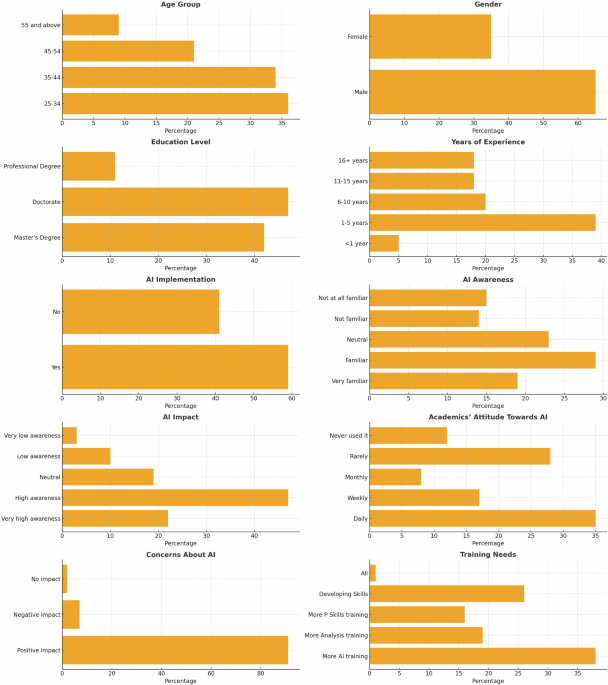The study investigates the impact of AI adoption in the Saudi Arabian accounting sector, emphasizing its potential to enhance accuracy, efficiency, and fraud detection. Utilizing a combination of the Technology-Organization-Environment (TOE) framework and the Knowledge-Attitude-Practice (KAP) model, the research explores demographic influences on AI adoption. Findings highlight a predominantly young, male academic population with a readiness to embrace AI, yet concerns about automation fatigue. Hypotheses focus on the effects of AI usage frequency on financial operations, the need for upskilling among professionals, and the role of organizational policies in successful implementation. The research employs a quantitative methodology, utilizing survey data from 101 Saudi accounting academics, analyzed through ADANCO structural equation modeling. Results indicate that effective AI integration is linked to proper training and ethical governance, promoting a workforce prepared for Vision-2030’s objectives. This study serves as a reference for future AI adoption research in developing economies.
Source link

Share
Read more